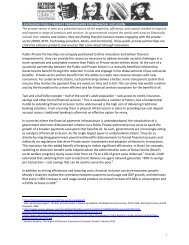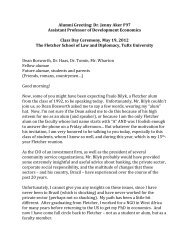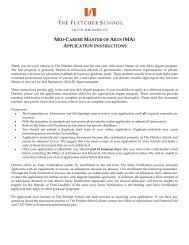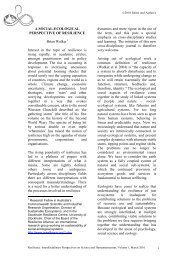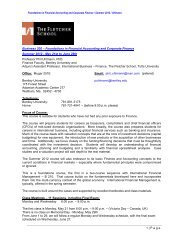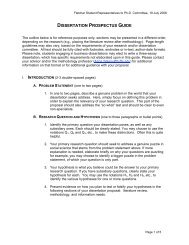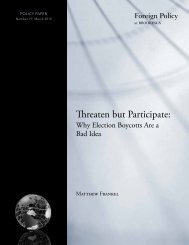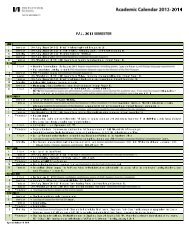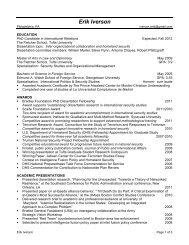A Case Study Analysis - Fletcher School of Law and Diplomacy
A Case Study Analysis - Fletcher School of Law and Diplomacy
A Case Study Analysis - Fletcher School of Law and Diplomacy
Create successful ePaper yourself
Turn your PDF publications into a flip-book with our unique Google optimized e-Paper software.
6The contrast between the rapid proliferation <strong>of</strong> SWFs in frontier markets, on the one h<strong>and</strong>, <strong>and</strong> the manychallenges that they must learn to cope with, on the other, is exacerbated by the nature <strong>of</strong> the investmentindustry. Investment is a hyper-competitive industry focused on the production <strong>of</strong> one “product”, a rate<strong>of</strong> return that is achieved through execution <strong>of</strong> investment strategies. Thus, the financial industry is oneglobally unified market aimed at capturing a completely non-differentiated product, investment return.Investment is thus based solely on execution, <strong>and</strong> the ability to innovate within the investment processitself. 8 While SWFs investment strategies diverge widely, most allocate a significant portion <strong>of</strong> theirportfolio to globally competitive financial markets. 9Clark <strong>and</strong> Monk posit that the ability to compete within the financial industry is based upon threeintangible assets: human capital, the process <strong>of</strong> decision-making, <strong>and</strong> the data <strong>and</strong> informationinfrastructure <strong>and</strong> architecture (2012). While technology has mitigated the impact <strong>of</strong> geography on accessto financial data, human capital <strong>and</strong> the process <strong>of</strong> decision making are two areas where SWFs in frontiermarkets suffer their greatest comparative disadvantages.Further increasing the difficulty <strong>of</strong> strengthening human capital <strong>and</strong> institutional processes is the nature <strong>of</strong>the knowledge involved in these aspects <strong>of</strong> the investment process. Human capital <strong>and</strong> investmentprocesses rely heavily on “tacit knowledge”, or knowledge that is best conveyed through demonstration<strong>and</strong> experience, in contrast to “codified knowledge,” knowledge that is easily verbalized or transferredthrough writing.SWFs in frontier markets face multiple impediments to learning how to resolve challenges <strong>of</strong> humancapital <strong>and</strong> process, discussed above. Coping with human capital challenges is particularly difficult. Asdiscussed above, many SWFs are unable to pay competitive salaries to attract human talent, facerestrictions on hiring foreigners, <strong>and</strong> suffer from shallow local labor pools. And even when SWFs are ableto hire employees with the requisite knowledge, sharing knowledge from an individual to the broader firmis challenging (Gertler 2003). Similarly, tacit knowledge does not travel easily between heterogeneousgroups:This is because its transmission is best shared through face-to-face interaction between partnerswho already share some basic similarities: the same language; common ‘codes’ <strong>of</strong>communication; shared conventions <strong>and</strong> norms; personal knowledge <strong>of</strong> each other based on a pasthistory <strong>of</strong> successful collaboration <strong>and</strong> informal interaction (Gertler 2003).8 This may not hold true for all financial markets, for example private equity, infrastructure, <strong>and</strong> other alternatives,but it does hold true for the highly liquid sovereign debt <strong>and</strong> global equity markets in which SWFs participate.9 It is worth noting that, unlike pension funds <strong>and</strong> commercially motivated investors, an SWF’s fulfillment <strong>of</strong> itspolicy objective may not depend on investing well or achieving a target rate <strong>of</strong> return.



